The curriculum aims to help students to understand and explain the causes of human behaviour and the impact of this behaviour on wider society. This is done through quality teaching, aligned with the MTUC Principals of great teaching T&L framework, which ensures students understand psychological principles and can apply them in a variety of familiar and unfamiliar contexts.
What will you learn
Students will develop a curiosity of the human mind and behaviour, to think analytically and to reach logical conclusions based on scientific evidence.
This course is designed to:
- Develop essential knowledge and understanding of different areas of psychology and how they relate to each other.
- Develop and demonstrate a deep appreciation of the skills, knowledge and understanding of scientific methods.
- Develop competence and confidence in a variety of practical, mathematical and problem solving skills.
- Develop their interest in and enthusiasm for the subject, including developing an interest in further study and careers associated with the subject.
- Understand the scientific process and how the sciences contribute to the success of the economy and society.
Year 13 Topic Story:
Paper 2 – Approaches (Year 2 content)
Students will have a more sophisticated understanding of the Year 1 approaches topics by the end of year 12
Paper 2 – Biopsychology (Year 2 content)
Biopsychology is taught at the start of Year 13 as it is an incredibly interesting topic that really encapsulates students interest at the start of the new academic year.
Paper 3 – Aggression
Aggression is taught as the first option topic as it is quite lengthy and includes a fair amount of biological content, which connects approaches and biopsychology that have been covered recently.
Paper 2 – Research Methods
As mentioned previously, Research Methods is separated our for engagement reasons. It is such a fundamental part of the course, however, that it needs to be covered relatively early in year 13.
Paper 3 – Schizophrenia
Students tend to enjoy this topic area so it fits well after the rather difficult research methods topic.
Paper 3 – Relationships
This topic area is relatable and isn’t too difficult to grasp so is appropriate to add towards the end of the course when stress levels can be high and confidence low.
Paper 3 – Issues and Debates
After completing all other topic areas within the course, students then have a broad range of topics to draw on when applying their prior knowledge in this synoptic unit.
How you are assessed and how we help you improve your work
Assessment and Feedback:
Assessment and feedback form an integral part of the course and will be seen in every psychology lesson. Students participate in a variety of retrieval and checking for understanding tasks as a means to assess learning and to allow responsive teaching. Mock exams are timetabled into the school calendar. Feedback from these mock exams is robust and leads to planned activities for filling whole class gaps in knowledge and/or skills alongside individual student plans which are targeted to needs. Regular mini assessments take place during lessons. Feedback from this includes a range of self-assessment, peer assessment or teacher feedback.
How are the needs of SEN and high achieving learners met?
Adaptive Teaching:
The Psychology team have high aspirations for all students and thus plan lessons with a view to allowing all students access to A* content. However, many different strategies are used to support students of differing levels to access the course. For example, use of scaffolding (PEEL / Hamburger Technique for AO3), application of strategies in SEND pupil plans and stretch and challenge in every lesson. Every lesson includes a range of techniques for checking for understanding to allow teachers to respond effectively to students needs (speeding up content if students grasp well / slowing down or revisiting topics where students struggle / supporting individual students). Modelling techniques such as ‘I do, we do, you do’ are used routinely to support students to grasp how to successful apply knowledge to examination questions. Feedback from formative assessment leads to targeted intervention to ensure all students are given improvement tasks at the correct challenge level.










